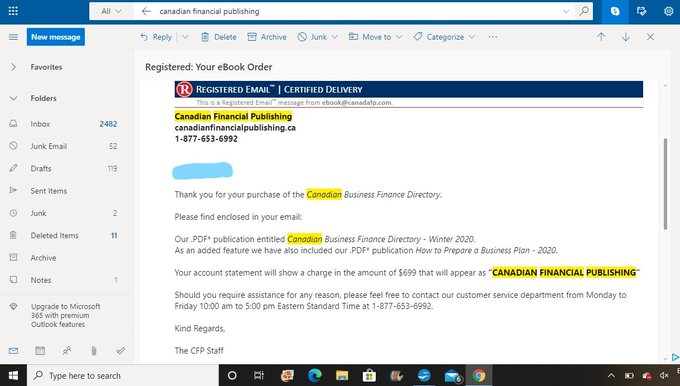-
Scam Entrepreneurship Program
<img src=”https://pbs.twimg.com/media/Ees-PF4XgAAGgAj?format=png&name=small” alt=”This is the company. Canadian Financial Publishing.
“>If you are trying to start a business as a new entrepreneur and you’re in Canada, avoid these guys! They are scam artists! They ask you to pay for resources that you can get online for free. They charge $700 for their “services” Everything they send you, you can find online for free! Don’t send them a dime. Then it’s a dime to get your money back. They even look legit, because of their website. They make it seem like they are affiliated with the Canadian Government, but THEY ARE NOT.
Log in to reply.


